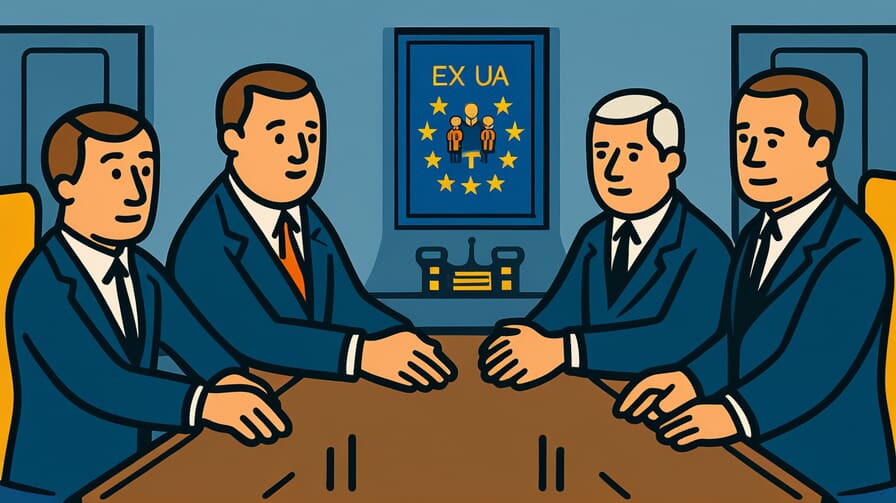[Disclaimer] This article is reconstructed based on information from external sources. Please verify the original source before referring to this content.
News Summary
The following content was published online. A translated summary is presented below. See the source for details.
On September 4, 2025, the Coalition of the Willing met in Paris to discuss long-term security guarantees for Ukraine and its EU membership prospects. The meeting, attended by representatives from 35 countries, focused on deploying troops or equipment for post-war Ukraine security and potential sanctions against Russia. European Commission President Ursula von der Leyen, in her second term, emphasized Ukraine’s future in Europe and the EU’s commitment to its security and reconstruction. The coalition agreed on the importance of sustained military planning and support for Ukraine, including the supply of long-range missiles. Concurrently, Ukraine’s EU accession negotiations, which officially began in June 2024, continue to progress despite political challenges within the EU. The meeting underscored the ongoing need for security guarantees and support for Ukraine’s European integration efforts amid the complex geopolitical landscape.
Source: European Commission Press Corner
Our Commentary
Background and Context

The ongoing conflict in Ukraine has necessitated continuous international support and strategic planning for the country’s future. The Coalition of the Willing, an informal alliance of nations supporting Ukraine, has been instrumental in coordinating aid and developing long-term security strategies. The recent meeting in Paris represents a significant step in addressing Ukraine’s security guarantees and its path towards European integration. This comes at a critical time when Ukraine is simultaneously managing war efforts and pursuing extensive reforms required for EU membership.
Expert Analysis
The Paris meeting highlights the complex interplay between immediate security concerns and long-term strategic goals for Ukraine. The discussion of security guarantees reflects the ongoing challenges in establishing a robust, NATO-style commitment to Ukraine’s defense without full NATO membership. The EU’s role in this process is pivotal, balancing support for Ukraine with the practical and legal limitations of its defense capabilities.
Key points:
- The coalition is actively planning for post-war security arrangements, including troop deployments and equipment provision.
- Ukraine’s EU accession process is progressing, with negotiations focusing on critical areas such as rule of law and anti-corruption measures.
- Political challenges within the EU, particularly from Hungary, are complicating the pace of Ukraine’s integration efforts.
Additional Data and Fact Reinforcement
Recent developments and statistics underscore the ongoing situation:
- EU accession negotiations with Ukraine officially began in June 2024.
- The first cluster of accession chapters is expected to open in the first half of 2025.
- Ursula von der Leyen’s second term as European Commission President runs until 2029.
Related News
The discussions in Paris are closely linked to other recent events, including von der Leyen’s visit to Latvia in August 2025 focusing on security and defense matters. Additionally, the UK Prime Minister’s chairing of a virtual Coalition meeting on the same day as the Paris gathering indicates the multi-faceted approach to supporting Ukraine.
Summary

The Paris meeting of the Coalition of the Willing represents a crucial step in addressing Ukraine’s long-term security and EU integration. While progress is being made, significant challenges remain, particularly in formulating legally binding security guarantees and navigating the complex EU accession process. The international community’s continued engagement and support will be vital for Ukraine’s future stability and European integration.


